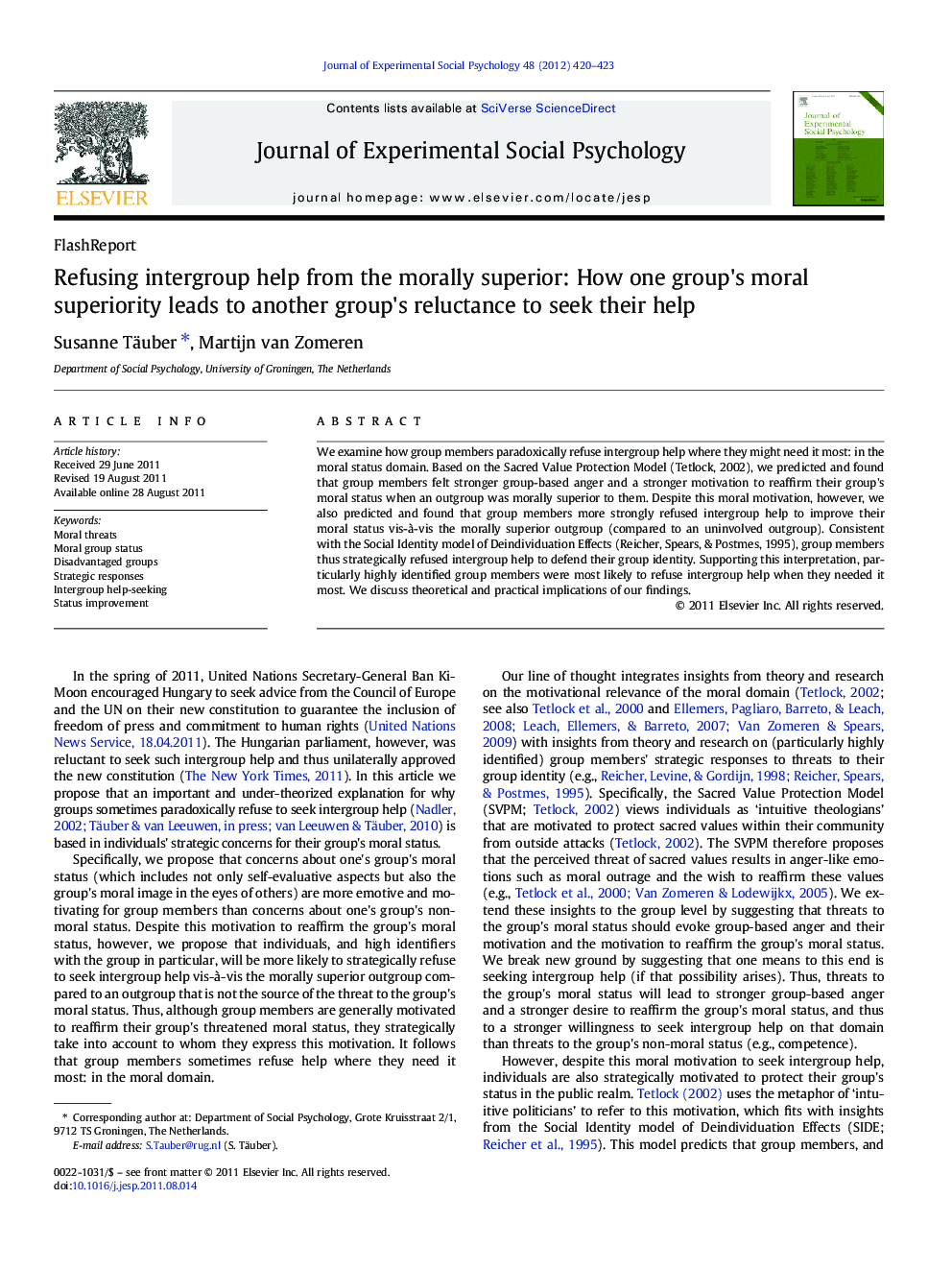| Article ID | Journal | Published Year | Pages | File Type |
|---|---|---|---|---|
| 948261 | Journal of Experimental Social Psychology | 2012 | 4 Pages |
We examine how group members paradoxically refuse intergroup help where they might need it most: in the moral status domain. Based on the Sacred Value Protection Model (Tetlock, 2002), we predicted and found that group members felt stronger group-based anger and a stronger motivation to reaffirm their group's moral status when an outgroup was morally superior to them. Despite this moral motivation, however, we also predicted and found that group members more strongly refused intergroup help to improve their moral status vis-à-vis the morally superior outgroup (compared to an uninvolved outgroup). Consistent with the Social Identity model of Deindividuation Effects (Reicher, Spears, & Postmes, 1995), group members thus strategically refused intergroup help to defend their group identity. Supporting this interpretation, particularly highly identified group members were most likely to refuse intergroup help when they needed it most. We discuss theoretical and practical implications of our findings.
► Threat to ingroup morality elicits the motivation to improve the group's morality. ► This motivation leads to help-seeking only vis-à-vis an uninvolved outgroup. ► Help was refused vis-à-vis the morally superior outgroup. ► Highly identified group members were most likely to refuse intergroup help. ► Refusal of help reflects a strategic defense of group members' moral identity.
